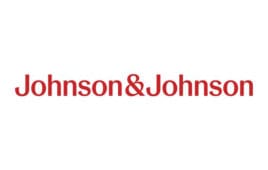
[Image courtesy of Getty Images]
“Fail fast” is a philosophy many use in every industry worldwide. It’s the notion of freely experimenting and learning throughout the process to make necessary changes to reach the desired outcome. Failing along the way, businesses learn more and make changes that will improve the final product. While some industries, such as information technology, decide to shy away from “fail fast” by putting a product out on the market and making iterations as problems arise, others don’t have that flexibility.
The term “failure” can be discouraging, but it’s common within the life sciences, especially in research and development. A National Academy of Sciences report states that failures account for 75% of combined research and development costs. Recognizing failure early and as quickly as possible can lead to substantial cost savings.
The COVID-19 pandemic was a “black swan” event: vaccines were developed and approved at a record speed. Biotechnology and pharmaceutical companies generally take 10–15 years to develop a promising drug, treatment or therapy. Furthermore, going from discovery to delivery can range anywhere from $314 million to $2.8 billion, depending on the product. All of these innovations must go through the traditional approval cycle of discovery validation, pre-clinical testing, clinical trials and the final step of regulatory approval before mass production.
The failures that occur during research and development are critical milestones for researchers to better understand disease processes and mechanisms of action and are important ways for companies to prevent an unsuccessful innovation going forward. But what if companies, especially small startups, don’t have the room or tools to fail fast on their own?
The current landscape
As necessary as knowing a molecule has potential, it is the critical decision point to know if the same molecule will not work due to safety or efficacy concerns. Therefore, drug development scientists want to understand their fail/forward path as early as possible, so they can go back to alternative candidates or move on in their research within the laboratory.
The current landscape for manufacturing processes today is limited. Biotech and pharmaceutical companies currently face the “build versus buy” dilemma, also known as the Pharma Manufacturer’s Dilemma, which can inhibit companies from being able to “fail fast.”
Traditionally companies of all sizes had two options for the manufacturing process: to build a facility, which can take 5–10 years and cost up to $2 billion, or outsource it through a third party (CDMO or CMO). Contracting has the drawbacks of giving up one’s intellectual property and joining a waitlist in a saturated market, which can take months or even years. Companies are turning to a new notion – cleanroom leasing – that enables scientists to put their fingertips on the fail/forward button much sooner than the traditional paths.
Company impact of cleanroom leasing
Cleanroom leasing is the practical middle ground between “buy” and “build” that has its benefits for both small and large companies, but the main benefit is to “fail fast.”
Early startups thrive with cleanroom leasing because it gives them the capacity to fail sooner and the advantage of growing at a manageable rate until they have enough capital to build their facility. Another benefit for small, early-stage companies is that Good Manufacturing Practices (GMP) are at the facility’s core. GMPs are essential for fast-growing companies that lack knowledge and expertise. Leasing laboratory space with complementary “wrap-around” services enables them to scale up without an excessive capital burden. “Wrap-around” services include support of sampling and testing requirements, as well as material storage and management capabilities.
Larger companies are taking advantage of cleanroom leasing to give them more space; some even are waiting for their facilities to be built. By doing so, they are failing fast and moving forward without the hold-up of building a new facility.

Daniel Dernbach
Whether a startup or an established company, all pharma manufacturers contend with the dilemma of building or outsourcing. By threading the needle and adopting the strategy of cleanroom leasing, companies can find themselves back on track by failing fast and getting to market faster.
Daniel Dernbach is the senior vice president of global operations at Azzur Group Cleanrooms on Demand. Dernbach has more than 25 years of experience in life science and healthcare with comprehensive operational expertise. Dan enjoys working with customers to progress their research and development and enable them to get their products into end-users’ hands as efficiently as possible. Dernbach joined Azzur Group in 2020.
Filed Under: Uncategorized




